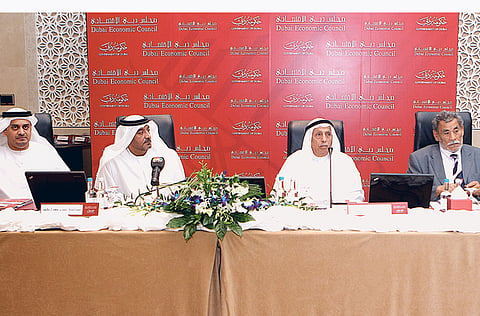Time ripe for Islamic banking law
Modification of civil process and a decree needed to promote better Sharia-compliant practices

Dubai: The secretary-general of the Fatwa and Sharia Supervision Board, Mabid Ali Al Jarhi has called for modifications to some civil laws and the introduction of an Islamic banking law.
Al Jarhi told Gulf News that such measures would promote better Islamic banking practices.
Islamic banks are presently guided by their own Sharia boards and have policies that often differ from those of other Islamic finance houses.
"To achieve a unified Sharia standard for Islamic finance, the civil law should be revised and the law of Islamic banking should be activated," Al Jarhi said.
He added that the law governing Islamic banks was issued in 1985 but it had not backed up by a decree and therefore the law was non-existent now.
Freedom of opinion
"We are not looking for a unified Islamic authority. We can't advocate for an authoritarian body. We believe in the freedom of opinion and collective efforts," he said.
Al Jarhi said that it was impossible to have unified legislation that would be mandatory for all Islamic financial institutions, owing to differences between Sharia schools.
"Although there is a kind of consensus... [such consensus] is not compulsory to many Islamic institutions," he said.
"So... what we are in need [are measures] to modify the civil law in a way to make all Islamic institutions responsible [and] complying with [legislation issued by the Assembly]," he said.
Islamic banking is a new phenomenon, barely 35 years old. However, it gained prominence following the crippling world economic crisis.
The concept of Islamic banking has spread worldwide with 450 Islamic fin-ancial institutions in 90 countries. At least 40 per cent of those banks are located in the Arab world.
The total assets of Islamic banks in the GCC region represent 91.2 per cent of those in the Arab world.
In the UAE there are eight Islamic banks, four of which are in Dubai.
Al Jarhi pointed out that Islamic banking practices in the UAE were better than in any other country in the region.
He said that UAE exposure to bad Islamic products was minimal in comparison to Saudi Arabia.
He added that UAE ranked first with a sukuk issuance of $33 billion (Dh121.2 billion) in 2007.
The assets of Islamic institutions are expected to reach $1.5 trillion by 2012 and will represent 50 per cent of the consolidated balance sheets of the Arab banks, Adnan Yousuf, chairman of the Union of Arab Banks and president and chief executive of Al Baraka Bank told Gulf News in an earlier interview.
"Islamic banks will witness growth rates of between 15 to 20 per cent as their assets are expected to increase from $850 billion to $1.5 trillion by 2012," Yousuf said.
"Within two years, Islamic banks will represent 50 per cent of the total assets of the Arab banks."
He said there is expected to be a great demand in the future for sukuks used to structure investment for huge projects which will be covered by Islamic banks.
Pointing out how Islamic banking was a better option to deal with the crisis than conventional banking practice, Yousuf said: "Islamic banks have their own principles as they look not only to the profit but to other elements based on Sharia law [while] looking for solidarity."
Core principles
The principles of Islamic banking ban interest and trading in debt. They don't deal with derivatives which are similar to gambling.
Yousuf clarified that what hurt other banks was that they were too greedy and went beyond their principles and capacity, as well as the fact that they were not adherent to the classic banking business but, unfortunately, had strayed from that.
"A good number of banks want [a] piece of cake. There are big banks who believe in the product of Islamic banking such as HSBC, Deutsche Bank and Citibank, which established a subsidiary for running Islamic banking business," he said.
He added that there was a trend toward Islamic banking in the UAE and it was successful, he said.
"Despite the disputes of Sharia schools there is 93 per cent consensus on the principles of Islamic financial system worldwide," he said.
"The 7 per cent difference is marginal and all [banks] are working very closely and will [overcome this] very soon as the Islamic banking is getting more mature."



